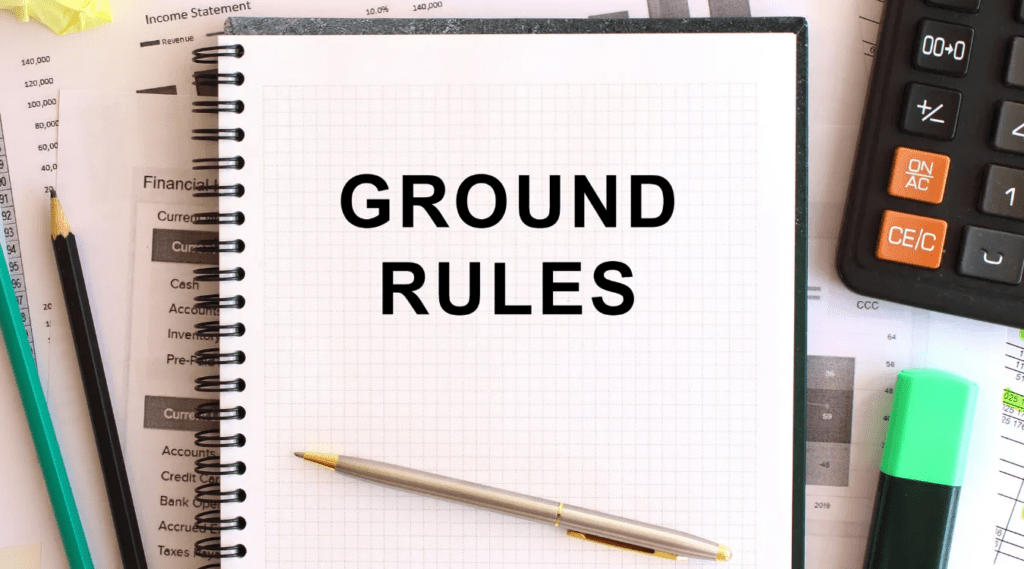
Creating a nurturing and safe environment for children is a primary responsibility of parents. One crucial aspect of achieving this is setting boundaries. From an early age, children need clear guidelines to keep them safe, teach them important life lessons, and help them develop into responsible and well-rounded individuals. As they transition into adulthood, the presence of boundaries continues to shape their character and behaviour, making them more competent and adaptable in various social settings. However, the approach to setting boundaries varies among parents, reflecting different parenting styles.
Understanding the impact of these styles and the significance of boundaries in parenting is essential for fostering a healthy and supportive family dynamic. In this article, we will explore the various parenting styles, the importance of setting boundaries, and practical strategies for establishing clear guidelines for children. Join us as we delve into the world of effective parenting and discuss the boundaries you have set for your kids that have proven both challenging and rewarding to uphold.
Why is it important for parents to set boundaries?
Young children need boundaries to keep them safe; do not talk to strangers; take care crossing roads, etc. When children grow into adults, limitations make them more excellent people to be around. Without them, they will find adult life much harder.
Let us examine our parenting styles before we go into the set and agree on boundaries.
Permissive Parenting or Indulgent Parenting: This parenting style leans towards allowing children to do as they please and offers limited guidance or direction. Parents adopting this style tend to behave more like friends than authoritative figures. The discipline style is the opposite of strict, with little or no rules, and children are mostly left to solve problems independently. Communication is open, but parents allow children to make decisions instead of providing clear directions. Parents in this category tend to be warm and nurturing, but expectations are typically minimal or not explicitly set.
Uninvolved Parenting: This parenting style involves giving children significant freedom and keeping a distance from their upbringing. Some parents consciously choose this approach, while others may be less interested in Parenting or uncertain about what to do. No particular discipline style is associated with uninvolved Parenting, as these parents mostly let their children do as they please, potentially due to a lack of information or caring. Communication is limited, and this group of parents offers little nurturing. Expectations of children are generally few or nonexistent.
Authoritative Parenting: This parenting style is characterised by being reasonable, nurturing, and setting high, clear expectations. Children raised by authoritarian parents tend to develop self-discipline and critical thinking skills, greatly benefiting their development. Disciplinary rules are clearly defined, and parents take the time to explain the reasons behind them. Communication is frequent and tailored to the child’s level of understanding. Authoritative parents provide nurturing support to their children. Expectations and goals are set at a high level but clearly stated, and children may have input into the family plans.
What is your Parenting Style?
Few of us fit neatly into one parenting style but rather raise children using various techniques. Think of the four styles as a continuum instead of four distinct parenting ways. Ideally, we think about our children and what they need from us at specific times. For example, while a parent might not typically adopt an authoritarian parenting style, you sometimes need to use that style in a child’s life. Or you might know a strict parent who is nurturing, contrary to the description above.
The permissive parent says yes to everything. ‘Oh, do your own thing. Whatever you want is OK.’ My years of working with parents and children have shown me that in a permissive environment, kids rebel. They rebel because they feel anger and hatred toward their parents for lack of guidelines and limit setting.
I see the impact of Parenting when working with Teenagers, in their confidence, taking responsibility and ownership of their actions. I am passionate about working with Parents to make their tweens evolve into a team with the right Motivation, Assertiveness, Goal Achievement, Intuition and Confident communicator of their realistic aspirations.

Let us talk about setting boundaries!
Indeed, setting clear and defined limitations is a fundamental way of expressing love to your children. Establishing consistently enforced guidelines provides them with the structure they need. As a parent, you play a crucial role in creating a safe environment for your children. Setting boundaries is essential to Parenting, as it helps children understand their limitations and learn important life lessons.
It’s important to acknowledge that children will inevitably test their limits as part of their learning process. They might even express their dissatisfaction when you uphold certain boundaries. However, maintaining those boundaries gives them a sense of safety and security.
Consistency is vital when it comes to boundary-setting. You must live up to your words to maintain their meaning. Consider the example of religious leaders whose children live contrary to their teachings. It raises the question of whether those parents lived according to their principles within their homes, which should be their primary ministry. It is crucial to remember the wisdom of 1 John 3:18 ESV, which encourages us to express love through words and demonstrate it through our actions and truth.
Here are ten ways to establish clear boundaries for your kids.
- Be trustworthy: Your kids must know they can count on you. When you fail to back up your words with action, your comments will cease to mean anything. Your discipline and boundary setting will become hollow.
- Less is more: “Five rules respected 100% of the time are better than 20 rules with irregular compliance.”
- Be precise: Miscommunication is not the way to establish a positive environment. Effective communication is necessary. Ask them to repeat what they heard you say to verify it is understood. It pays to make sure everyone is on the same page.
- Involve the kids in boundary setting: Have a family meeting. Family communication gets everyone involved in setting boundaries. When children share ownership of the rules, they are more invested.
- Draw up a contract: Once the “Family Ten Commandments” have been established, sign a document everyone will sign.
- Post the rules: Post copies of the contract in the kitchen and each bedroom. Remember, these are not restrictions so much as rules to live by.
- Recognise appropriate behaviour: Catch them when things are going well. Too many of us come down on violations like a ton of bricks and never pay attention to what is going well. If they are after an engagement, they’ll get it one way or the other.
- Avoid labelling children as “good” and “bad”: Children—and adults—behave in acceptable and unacceptable ways. Labelling a child as “bad” will do little to improve behaviour and a lot to create a negative self-image.
- NEVER undermine the other parent: “Don’t tell your mom!” suggests you and your wife are divided. Parents must have each other’s backs. It is another way to be consistent.
- Employ “natural consequences” when possible: When raising teenagers, natural consequences make more sense. For younger children, this helps associate adverse outcomes with specific behaviour. Not following instructions for cleaning their room and missing a fun activity while cleaning the space is less punishment and more of a consequence. Inappropriate talk? Instead of a spanking, try having the child look up ten appropriate words in the dictionary and copy them all down, including definitions, etymology (origin of the word), etc.
Conclusion:
In conclusion, setting boundaries is crucial for parents in raising well-rounded and responsible children. Edges provide safety, structure, and guidance, helping children understand their limits and navigate the world around them. The different parenting styles mentioned, such as authoritarian, permissive, uninvolved, and authoritative, demonstrate the various approaches parents can take in establishing boundaries. While no parenting style is perfect, parents must adapt their techniques based on their children’s needs and circumstances.
Parents show their love and care for their children by setting clear and consistent boundaries. Trustworthiness, precision in communication, involving children in boundary setting, and recognising appropriate behaviour are effective strategies for establishing limitations. It is essential to avoid labelling children and undermining the other parent, fostering a united front in Parenting. Natural consequences can also help children understand the connection between their actions and outcomes.
Overall, setting boundaries is an ongoing process that requires effort and consistency. It may not always be easy, but it is a vital aspect of Parenting that contributes to the growth and development of children.
Let’s start discussing boundaries you have set for your kids that have been the easiest or hardest to hold.
More Articles on Parenting
FAQ
Why are boundaries important for children?
Boundaries are essential for children because they provide safety, structure, and guidance. They help children understand their limits, develop self-discipline, and make better decisions.
How can parents involve children in setting boundaries?
Parents can affect children by setting limits and establishing rules through open discussions and family meetings. Children involved in the process are more likely to understand and respect the boundaries.
Can parents have a combination of parenting styles?
Parents often exhibit various parenting styles depending on the situation and their child’s needs. It is essential to be flexible and adapt parenting techniques accordingly.
What are natural consequences, and how can they be used?
Natural effects help children understand the connection between their actions and the outcomes they experience. They are different from punishments and can be used as teaching.
How can parents maintain consistency in enforcing boundaries?
It requires clear communication, follow-through, and leading by example. Parents should ensure that their words align with their actions and consistently implement the established rules and consequences. It is also crucial for parents to support each other and present a united front in Parenting to avoid undermining boundaries.
Are boundaries only necessary for young children?
No, boundaries are essential for individuals of all ages. While the specific limits may change as children age, the concept remains relevant throughout life. Boundaries provide guidance and structure, help individuals understand their responsibilities, and promote healthy relationships and personal development.












Thank you, Sam, for sharing your insights on this topic and reminding us of the importance of effective parenting. Setting up boundaries is a crucial aspect of effective parenting. Not only does it establish a sense of structure and safety for children, but it also helps them learn valuable life skills such as self-discipline and respect for others. As a parent, it can be tempting to want to be your child’s friend and avoid confrontation. However, by setting clear boundaries and consequences, you are showing your child that you care about their well-being and development.